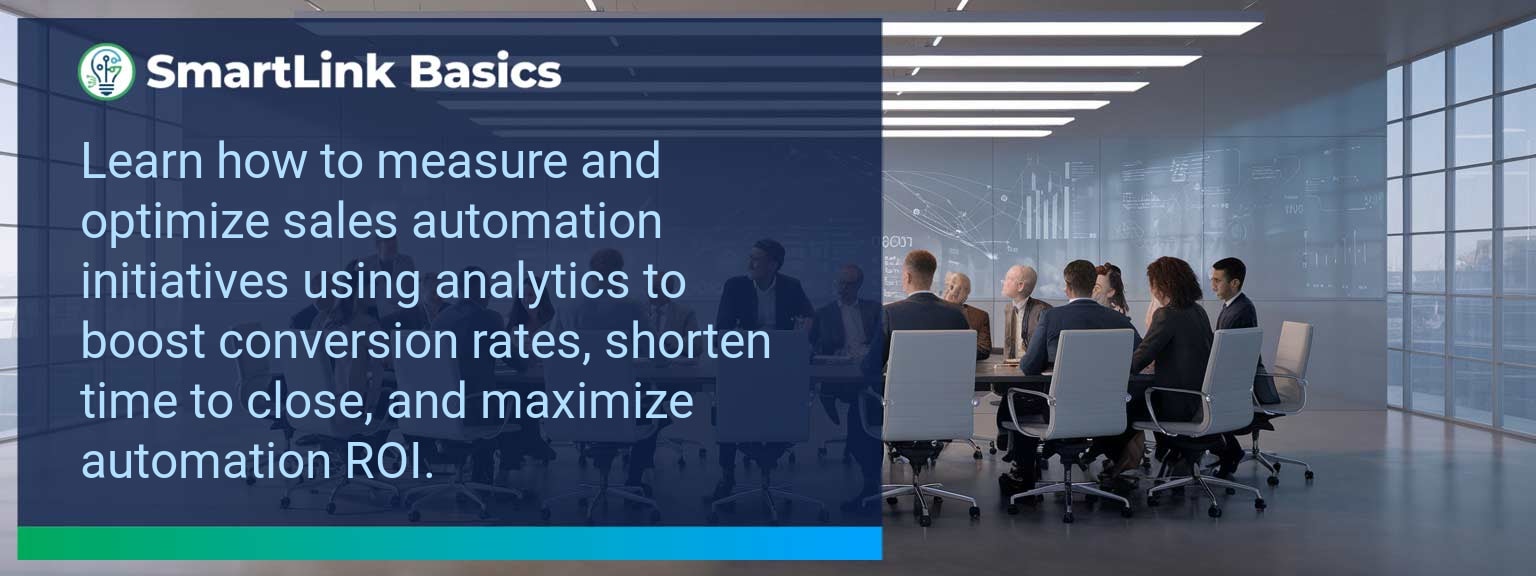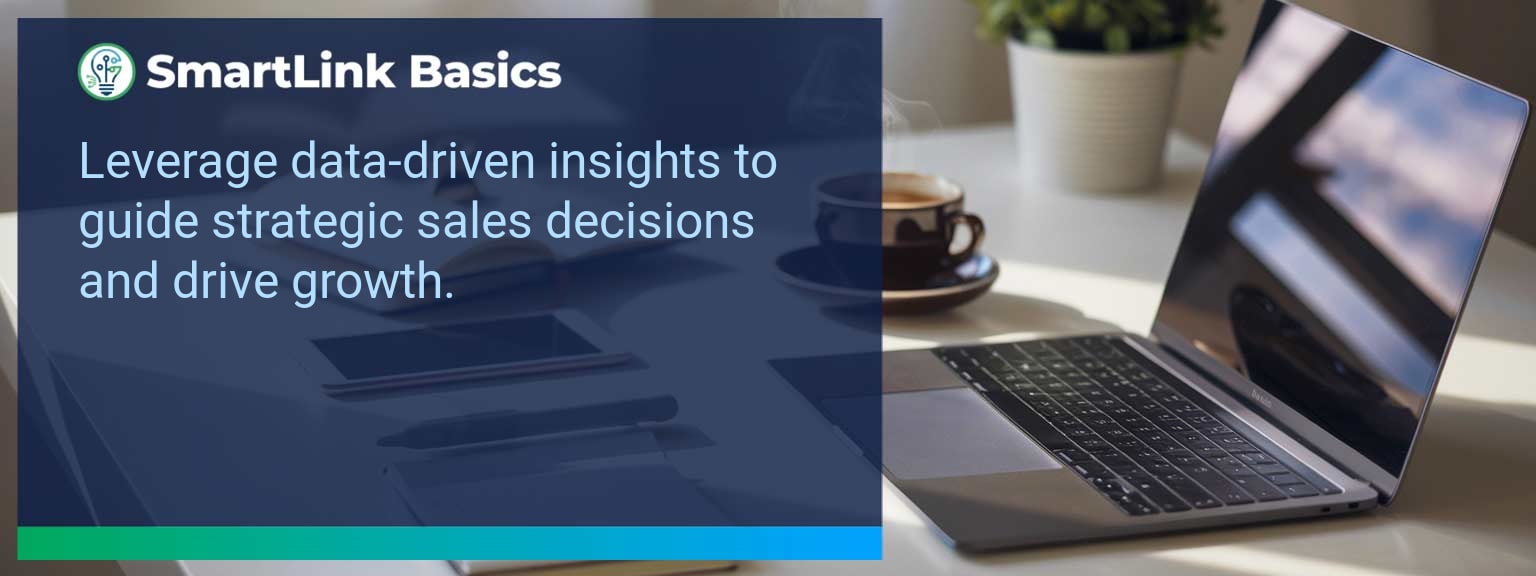Industry data shows that organizations adopting AI-driven automation achieve cost reductions of up to 30% while accelerating sales cycles by 20% or more (McKinsey, 2024). For sales leaders, AI automated workflows now define competitive advantage, enabling teams to reallocate time from repetitive tasks to high-value engagements. At SmartLink Basics, we help decision-makers implement these systems strategically, ensuring they integrate with existing revenue operations. In this article, you’ll see how AI automated workflows power business outcomes, the common obstacles that slow adoption, and practical steps to optimize processes. You’ll walk away with proven examples, a 90-day action blueprint, and measurable KPIs to track results.
- Automate repetitive administrative and CRM updates with AI.
- Integrate machine learning to personalize outreach at scale.
- Streamline approvals, quotes, and contract workflows for speed.
- Use predictive analytics to prioritize sales opportunities.
- Track adoption and performance with targeted metrics.
AI Automated Workflows: What Changed and Why It Matters
AI adoption has shifted from experimental to operational, making automated workflows a standard in high-performing sales organizations. The real advantage lies in combining workflow automation with artificial intelligence workflows to optimize every step of the revenue process. Sales leaders now use AI to synchronize touchpoints, reduce manual inputs, and ensure faster execution. For example, a B2B SaaS leader introduced automated lead enrichment and routing, cutting qualification time by 60%. Actionable insight: Audit processes for time-intensive handoffs and apply AI where repeatability is high.Redesign the Revenue Operating System With AI Automated Workflows
ICP, Segmentation, and Targeting AI-enabled segmentation uses historical wins, firmographic, and behavioral data to dynamically update ICP profiles. This ensures targeting precision without quarterly re-work. Pipeline Architecture Automated workflows push opportunities through the right stages based on engagement signals. AI flags at-risk deals for intervention. Plays and Messaging Integrated automation tools deliver personalized sequences based on buyer activity, increasing relevance at every touchpoint. Operating Cadence AI schedules follow-ups, forecast calls, and account reviews based on actual pipeline movement rather than static calendars. Actionable insight: Implement automation that adapts in real-time to both internal and buyer-driven events.Common Obstacles To Achieving Seamless Automation
The most frequent challenges are fragmented systems, inconsistent data quality, and cultural resistance. Without a unified data layer, automation amplifies errors rather than solving them. Coca-Cola Europacific Partners reported needing a full data governance upgrade before AI could improve sales workflows. Leaders must first assess infrastructure readiness and train teams to trust AI-influenced recommendations. Actionable insight: Before deployment, establish clean data practices and a single source of truth.Implementing AI To Optimize Workflows
Effective deployment of AI process optimization starts with mapping current-state processes, identifying friction points, and matching them with automation tools. For example, automating proposal generation based on CRM opportunity data can reduce turnaround from three days to one hour. Solutions combining business process automation platforms with machine learning integration enable continuous performance improvement. Actionable insight: Pilot in one high-impact stage, measure, and then expand.Tangible Benefits From Automated Processes
The benefits extend beyond time savings — sales leaders gain a scalable system. Tangible outcomes include faster quote-to-close, higher lead conversion, and better forecast accuracy. A manufacturing firm implemented AI-assisted order processing and cut errors by 40%, improving on-time delivery rates. Actionable insight: Track both speed and accuracy to measure workflow automation effectiveness.Metrics That Matter
| Category | Metric | Definition | Target |
|---|---|---|---|
| Leading | Workflow Completion Rate | % of automated sequences executed without manual intervention | 95%+ |
| Leading | AI Suggestion Adoption Rate | % of AI-generated action recommendations executed by reps | 80%+ |
| Lagging | Cycle Time Reduction | Decrease in time from lead entry to closed-won | 20%+ |
| Lagging | Revenue Per Rep | Average sales revenue generated per sales rep per quarter | +15% YoY |
| Quality | Automation Error Rate | % of workflows that trigger incorrect outcomes | <1% |
| Quality | Customer Satisfaction Post-Automation | Average CSAT score after automation implementation | ≥ 4.5/5 |
Innovations And Next Steps For AI Automation
Emerging capabilities like AI-generated playbooks, intent-driven dynamic routing, and integrated AR for virtual product demos are shaping the next wave of sales automation. Companies integrating these tools early will outpace competitors in speed and personalization. Actionable insight: Stay ahead by testing emerging automation features quarterly and aligning them with evolving buyer expectations.Get the 90-day plan, coaching rubric, and dashboard template to operationalize AI in your enablement program.
Turning AI Automation Into a Revenue Multiplier
AI automated workflows are now a strategic lever for predictable, scalable growth. This guide outlined current applications, adoption challenges, a 90-day execution plan, and measurable success criteria. To make automation pay off, sales leaders should integrate tools into one cohesive operating system and review results monthly for continuous improvement. Access more AI-driven sales enablement resources from SmartLink Basics to design a high-performance automation strategy. Effective sales leadership requires more than hitting aggressive revenue targets. It demands precision in hiring, investment in coaching, and cultivating a culture that compels performance excellence. At SmartLink Basics, we’ve seen how organizations with strong leadership frameworks consistently outperform peers, regardless of market volatility. Sales leadership strategies that balance rigorous process with talent empowerment determine whether a sales team merely survives or scales with impact. In this article, you will learn how to refine hiring standards, implement targeted coaching, and shape a performance-oriented environment that drives measurable gains.- Recruit for both skill compatibility and cultural fit
- Define a clear sales operating system
- Implement structured, data-driven coaching
- Embed accountability and recognition into the culture
- Measure leading and lagging indicators consistently
Common Obstacles In Leading Sales Teams
Many sales organizations underperform due to unclear expectations, inconsistent coaching, and misaligned incentives. Leaders often face tension between short-term revenue pressure and long-term capability building. Without a solid talent framework, even the most sophisticated technology stack fails to deliver results. For example, a tech services firm scaled headcount rapidly but neglected role clarity and pipeline discipline, resulting in stalled growth and high turnover. Its leadership underestimated how process gaps erode confidence and performance. The actionable approach is to identify structural weaknesses early—whether in talent mix, process adherence, or performance measurement—and address them before scaling.Strategies That Transform Sales Performance
Redesigning the sales operating system is central to sustainable growth. Effective sales leadership strategies integrate structured targeting, revenue architecture, defined plays, and consistent cadence to ensure alignment. ICP, Segmentation, and Targeting Precision starts with defining your ideal customer profile and segment priorities. This focuses sales activity on the accounts with highest conversion potential. Pipeline Architecture Structure the pipeline with clear stage definitions, measurable exit criteria, and stage-specific tactics to prevent leakage. Plays and Messaging Document repeatable sales plays with tested messaging aligned to buyer stages. Equip your team to pivot quickly as market conditions shift. Operating Cadence Set a predictable rhythm for pipeline reviews, deal strategy sessions, and performance check-ins. Maintain equal focus on leading metrics like activity quality and lagging outcomes like closed revenue.Measurable Gains From Strong Sales Leadership
Organizations with disciplined sales leadership often see higher win rates, reduced turnover, and faster ramp-up times. For example, a B2B SaaS firm implementing structured coaching saw quota attainment rise by 18% within two quarters. This performance lift comes from aligning recruitment methods with execution priorities and reinforcing skills through targeted coaching techniques, not just generic training.| Category | Metric | Definition | Target |
|---|---|---|---|
| Leading | Qualified Pipeline Coverage | Value of qualified opportunities vs quota | 3x quota |
| Lagging | Win Rate | Closed-won deals / total opportunities | ≥ 35% |
| Quality | First-Year Retention | Percentage of clients retained after one year | ≥ 90% |
Preparing Teams For Ongoing Success
Future-ready sales teams adapt quickly to changing buyer behaviors and market shifts. Leadership must embed resilience into the sales culture by fostering continual skill development, enhancing cross-functional collaboration, and refining go-to-market intelligence. Rotating top performers into peer coaching roles and building leadership bench strength protects against over-reliance on a few individuals. Clear succession planning and skill-gap monitoring ensure that progress is sustained beyond short-term cycles.Get the 90-day plan, coaching rubric, and dashboard template to operationalize AI in your enablement program.









